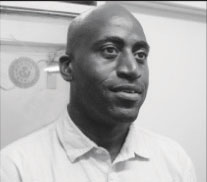
OF the three methods to gaining wisdom, according to Confucius, the first, and highest, is reflection. This feature of self-examination is found in some programming languages, which use “reflection,” to allow a running application to examine or modify parts of its own environment. Interestingly, this feature is the basis of artificial intelligence, and causes programs to appear smart. It is partly what makes malware and computer viruses so difficult to deal with.
For me, the idea of reflection, of looking inward, resonates particularly strongly as I reflect on the approaching birthday of my late father. I am partly consoled and impressed by the extent to which we rely on others, and learn from them too.
In computing environments, this reliance is partly manifest by the existence of multiple layers of software working together. From the operating system, to low-level drivers, to utility software, and finally to your usual application software (apps) at the topmost level.
In this column, I usually ask you to think about things and consider ideas and suggestions within your own environment. In this article, I shall share some lessons learned from my own life. Specifically, some five lessons learned from my father:
(1) Learn your lessons
Interpreted as keeping abreast of changes within the field. Reading takes the form of several magazine subscriptions, tracking mailing lists and professional alerts, ebooks, various online magazines and blogging sites.
(2) Speak Up
Be assertive, not aggressive, and say what is on your mind. Speak the truth, especially when confronted by opinionated people. Interpreted now as timing one’s comments for appropriateness and effect.Communicating clearly, and succinctly.
(3) Be Useful
Don’t waste time on trifling matters. Interpreted when designing systems and software, on making life easier for others. Think ahead of problems, and prepare for them. This very column forms part of this lesson, of making complex information more relevant and easily explained to others.
(4) It Doesn’t Matter
Don’t dwell on annoying matters or disappointments. What you might also know as: “Don’t sweat the small stuff.” Some messages are truly timeless!
(5) Pursue Peace
Avoid unnecessary animosity and difficulties. In fact, actively de-escalate those difficulties where possible. Useful advice for dealing with others in a large family environment, where war games were common and were frowned upon. Pursue peace, but be prepared for conflict.
You may recognise some of these lessons from your own environment and upbringing. While there are other lessons that could be shared, these provide a useful starting point for understanding the background of this author. The ancient philosopher Socrates, said: “the unexamined life is not worth living.” In other words, know yourself! If computer programs can benefit from reflection, so should we.
To share your views, contact the author at: www.datashore.net or via The VOICE.
About the Author
Dr. Lyndell St. Ville is an ICT Consultant, and Chief Technology Officer of Datashore, based in Saint Lucia.
He areas of interest include: systems analysis and design, programming, databases, and policy development.
This article should be considered as general advice. Always consult your ICT service provider before relying on external advice.





![Simón Bolívar - Liberator of the Americas [Photo credit: Venezuelan Embassy]](https://thevoiceslu.com/wp-content/uploads/2025/12/Simon-Bolivar-feat-2-380x250.jpg)



